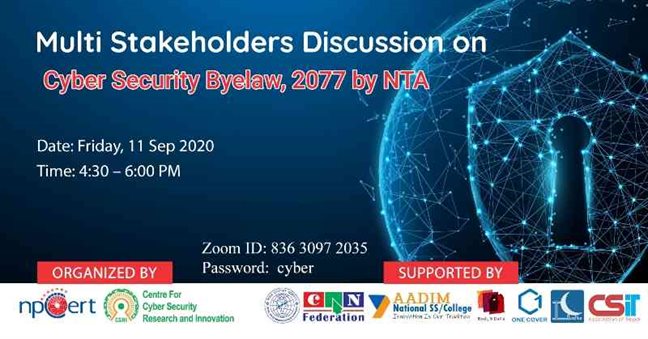Multi Stakeholders Discussion on NTA Cyber Security Byelaw 2077
6th September 2020, Kathmandu
In today’s digital era, owning data and information not only accumulates to technological but also financial gain. The terms cybersecurity, cyber law, and hacking are not new in today’s world. Many people are well-tuned to the digital world. From paying bills to phone calls or to store important documents electronically, digital platforms have become a much convenient option. With the platform gaining importance, threats induced by cyber-crime have also affected a diverse number of public and private organizations. The servers and data centers of such organizations are much prone to cyber-attacks.
Any individual or organization could be an easy target for hackers. Therefore, it has become more important to protect the information system and infrastructure from hackers by implementing cybersecurity best practices and enforcing cybersecurity laws. The Government of Nepal has also implemented many cyber laws such as the Electronic Transaction Act, 2063. And, there are other Cyber related acts and laws, such as National Cyber Security Policy 2016, and IT Bill 2018 are in process of amendment. Recently, Nepal Telecommunications Authority (NTA) launched Cyber Security Bylaw, 2077 (2020) meeting cybersecurity standards and by showing best practices to protect IT infrastructure from various malicious attacks and threats to building trust and confidence of users towards using ICT technology and services of NTA.
This week on 11th September 2020 the Information Security Response Team Nepal (npCert) and Center For Cyber Security Research and Innovation (CSRI) Jointly hosted an open discussion on the topic “Multi Stakeholders Discussion on NTA Cyber Security Byelaw, 2077”.
For more details: Click Here







